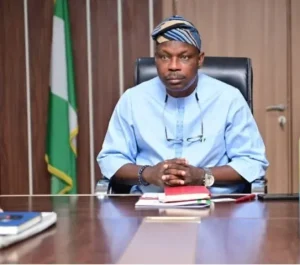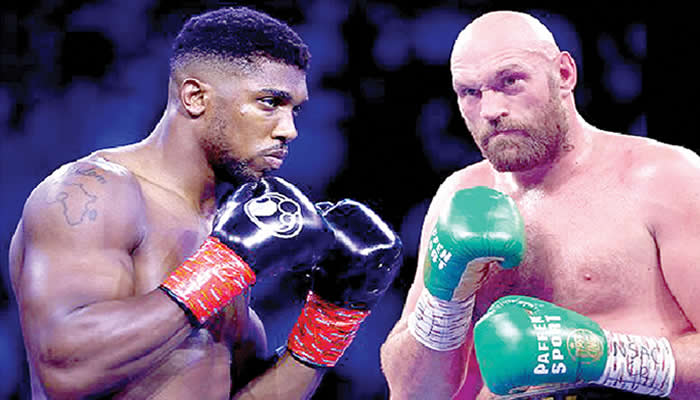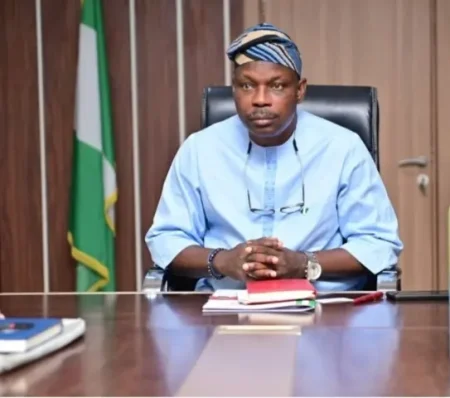The Fury-Joshua Spectacle: A Heavyweight Clash on the Horizon?
The boxing world holds its breath in anticipation of a potential clash of titans: Tyson Fury and Anthony Joshua. George Groves, a former world champion, has fueled this anticipation, asserting that the fight is not only a possibility but is likely a done deal, awaiting its grand unveiling. Groves believes Fury’s current absence from the boxing scene is a strategic move, a calculated lull before the storm of an official announcement. He dismisses the notion that Fury needs further persuasion, confident that the fight is either formally agreed upon or nearing completion. The boxing community is buzzing with speculation, with Groves’s insights adding further fuel to the fire. Both fighters are coming off losses, a factor that arguably adds an element of unpredictability and desperation to the potential matchup. The question isn’t whether they are in peak form, but whether their hunger for redemption will ignite a spectacular showdown.
Groves argues that neither Fury nor Joshua requires a tune-up fight. Their paths have converged at a point where both have tasted recent defeat, stripping away the need for preparatory bouts. He notes Joshua’s loss to Dubois, contrasting it with Fury’s struggles against a "cage fighter," suggesting that both heavyweights are in similar positions, making a direct confrontation a logical next step. This narrative of two fallen giants seeking to reclaim their dominance adds a compelling layer to the potential fight. Groves even humorously suggests the possibility of a cage match, a nod to both fighters’ recent encounters with MMA fighters, adding a playful touch to his serious predictions. The anticipation surrounding this potential clash is palpable, with fans eager to see these two titans of the heavyweight division finally face off.
Haye vs. Joshua: A Hypothetical Heavyweight Showdown
Turning his attention to other heavyweight figures, Groves draws a compelling comparison between Anthony Joshua and another former world champion, David Haye. Groves’s assessment is bold and unequivocal: Haye was a superior fighter. He praises Haye’s speed and power, recalling sparring sessions where even his own lightning-fast jab couldn’t connect. He recounts the sheer force of Haye’s punches, a testament to the devastating power the former cruiserweight and heavyweight champion possessed. Groves’s personal experience sparring with Haye lends credence to his assessment, offering a unique perspective on the fighter’s exceptional abilities. This comparison adds another layer of intrigue to the discussion, raising questions about how Joshua would have fared against a prime Haye.
Groves envisions a hypothetical Haye-Joshua fight as a "shootout," a high-octane clash where both fighters possess the knockout power to end the fight in an instant. However, he leans towards Haye, citing his technical prowess and speed as decisive advantages. Despite this, Groves acknowledges that Joshua’s power could always be a leveling factor, making it a 50-50 contest in his eyes. This hypothetical matchup sparks debate among boxing enthusiasts, creating a captivating what-if scenario that fuels further discussion. Groves’s insights, based on his firsthand experience and deep understanding of the sport, provide a valuable contribution to this hypothetical showdown.
Whyte’s Pursuit and the Joshua Factor
Shifting his focus to the current heavyweight landscape, Groves analyses Dillian Whyte’s position and recent rumors surrounding potential matchups. He bluntly claims that Whyte is primarily motivated by financial gain, lacking the reputation and drawing power of someone like Derek Chisora, who reportedly declined a lucrative offer to face rising prospect Moses Itauma. This candid assessment highlights the business side of boxing, where financial considerations often influence a fighter’s decisions. Groves’s comments suggest Whyte’s options are limited due to factors beyond his control, painting a picture of a fighter navigating a challenging career landscape.
Addressing Whyte’s persistent interest in a rematch with Joshua, Groves reminds us of their previously scheduled fight, derailed by Whyte’s positive drug test. He emphasizes Joshua’s strong stance against doping in the sport, recalling the Big Baby Miller incident and the subsequent Ruiz upset, highlighting Joshua’s aversion to last-minute replacements and his firm stance on performance-enhancing drugs. This context adds another layer of complexity to the potential Whyte-Joshua rematch, suggesting that Joshua’s principles may be a significant obstacle. Groves’s analysis provides a nuanced understanding of the dynamics at play, going beyond the surface-level speculation and delving into the underlying factors influencing these fighters’ decisions. His insights shed light on the intricate web of factors shaping the heavyweight boxing scene.














